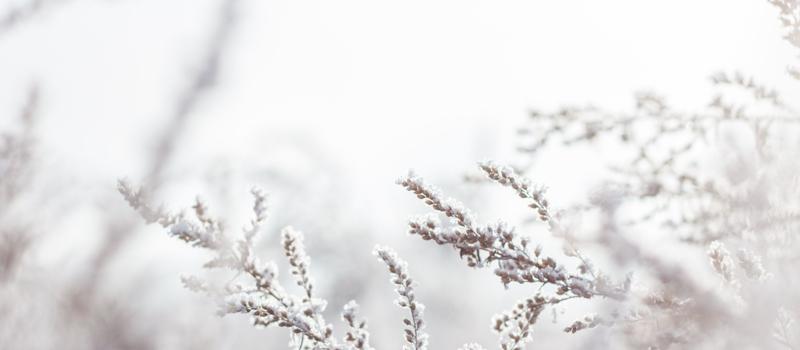What Happens to Bugs During the Winter?
Posted by Mosquito Squad
December 4, 2020

When you turn the thermostat up or throw another log on the fire as the wind howls against your window, we’re sure the thought of how insects are faring in the winter is the furthest thing from your mind. However, for science nerds and bug critics who have ever wondered “what happens to bugs during the winter?” we’re here to indulge your curiosity.
Insects deploy a few strategies for surviving the cold winter months. Some insects, such as butterflies, dragonflies, and beetles migrate south, trekking hundreds of miles. Many others, mosquitoes included, use diapause as a common defense. Diapause is a dormant state in which development of the insect is suspended. “Diapause” is often used interchangeably with “hibernation”, but there are some key differences.
Hibernation is most likely to occur during the winter season, whereas diapause can occur any time of the year under adverse environmental conditions. Hibernation is characterized by a ‘deep sleep’ where body temperature, heart rate, and breathing all slow down. Mammals that enter hibernation will sometimes ‘wake up’ for short periods of time, but the state of diapause remains consistent until spring, or environmental conditions become favorable again.
Also, diapause is showcased by a suspension in the developmental life cycle. Insects can enter diapause at any stage of their life cycle, it just depends on their genetic makeup. But once they do, it means that they stop developing and instead spend a prolonged period in a single stage of their natural life cycle. Insects in diapause essentially turn themselves “off” in the winter and back “on” in the spring.
As if all of this wasn’t fascinating enough, there are also classes of ‘social insects’ like honeybees, termites, and some ants that opt to stay put, taking on the task of “winterizing” their homes for the winter. They winterize by moving further into the center of the nest and layering the outer walls with dirt and leaves. Deborah Delaney, Assistant Professor in the Department of Entomology and Wildlife Ecology at the University of Delaware, also explains the intriguing way honeybees keep each other warm by banding together and working in unison to generate warmth and serve as insulation.
Winter isn’t often a person’s favorite season, but given the options above, we’re glad our hibernation period consists of a warm house, Wi-Fi, and endless streaming options.
In regions where a cold winter is followed by a warm, damp spring you can be sure insects will emerge in full force. Get ahead of the spring awakening by contacting your local Squad and renewing your mosquito control packages today!
